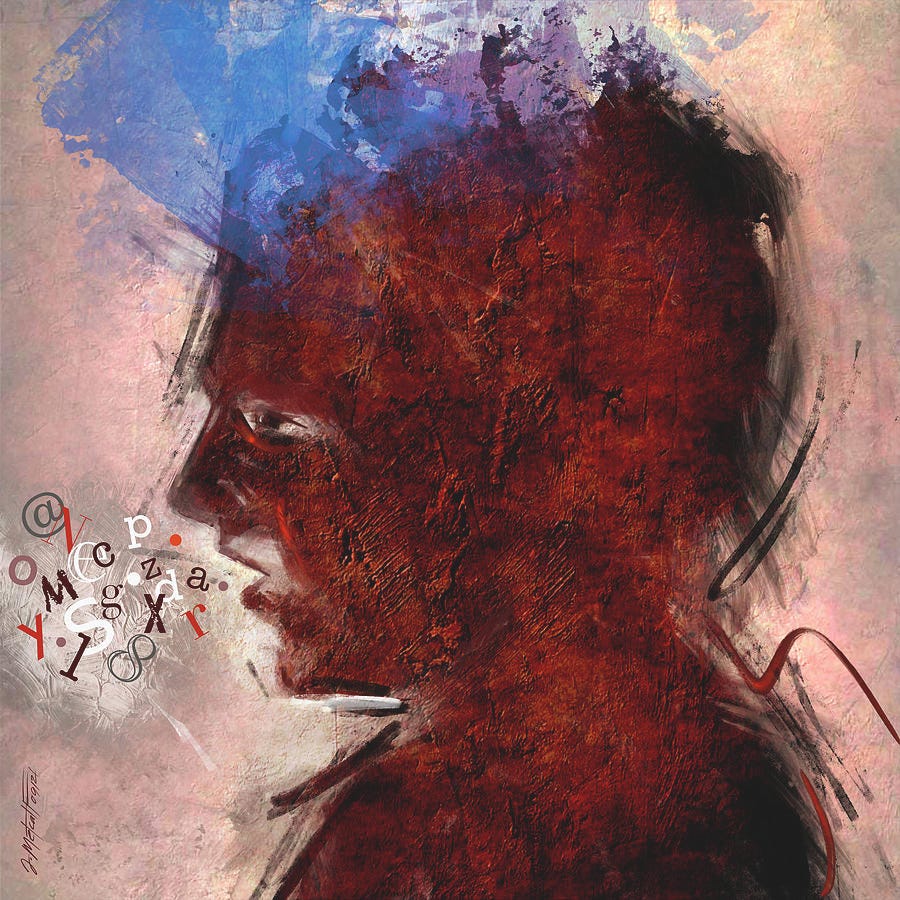Nerds/rationalists/postrats are often inventing new words. Over the years, this started to bother me.
Why? New terminology may seem harmless, but I’ve finally clarified my objection:
Inventing words is often a way to bypass the far superior ordeal of becoming articulate with a language people already speak. It’s choosing to become weirder, instead of more excellent.
An example
I’ll give a fictional example. This example is closely derived from a real one I saw today on Twitter.
Suppose you call yourself a ‘vibe-bender’. (Coinages of this type are very frequent, and I doubt anyone in or adjacent to my online circles will consider it unrealistic.)
Many, but not all of us, will be able to sense the meaning of the term. For those who don’t,
urbandictionary defines a vibe as “A distinctive emotional atmosphere; sensed intuitively.”
To be a ‘bender’ of something is to have a sort of alchemical or shamanic power over it. I believe this term comes from Avatar: The Last Airbender, a show about wizard children from 2005.
So a vibe-bender is someone who is so in tune with the emotional atmosphere that he can control it or wield it.
Why this works
I’m not saying the coinage doesn’t make sense. It does.
I doubt the coinage will be that sensible in 100 years, but maybe that’s okay. People often use obscure coinages to speak to a local group, perhaps a group which gatekeeps membership through an in/out distiction, perhaps one maintained by (among other tics) referring to a large number of things through the lenses of anime TV shows and other memes or whatever else that group is into.
Why this fails
At the end of a decade of inventing new words you will have a little system of ideas that some other nerds might adopt in order to talk to you. But after a decade of learning to speak English better, you're like... poetical and shit. You can write & talk good. To lots and lots of people. It’s empowering.
Instead of calling yourself a ‘vibe-bender’, try on: You are charismatic. Your attunement to social situations is a product of discipline and harmony. You sense the grooves and undulations of interpersonal landscapes and shape them with creativity and expertise. Your synchrony with social energy is so perfect as to make any distinction between you-and-it both extraneous and misleading.
Sweet. That’s cool. That’s interesting. It makes sense, but it isn’t boring. You may need to think for a second, but you’re well on your way to becoming a person who can talk and write and express himself in novel ways.
Weirdness isn’t everything
Every time a person coins new terms instead of improving at speaking his own language, he shrinks the crowd he can address, isolates himself a bit more, and gets a little weirder.
It’s useful to be able to communicate with people. I once attended a talk by Keith Johnstone, who wrote Impro and is considered by many an icon of innovation and aliveness in improvisation and beyond. He was very old at this point, and an audience member asked him how to think outside the box. He said something like: “Don't think outside the box. For God's sake, think inside the box. You need to be able to work with people.”
New terms can be useful or essential in technical contexts, where nothing else will serve. But terminology must earn its keep.
Subcultures live and die. Clear speech takes a crack at eternity.
This post was derived from a tweet.
Further reading: Orwell’s Politics and the English Language





Very good post! I think there's a broader discursive malady in play here, whereby people retreat behind layers of abstraction, enshrining signifiers as things unto themselves. One sees this in the endless quibbling over terms with political or moral valences, e.g. debating whether something is fascist, as if evil can be thwarted like Rumpelstiltskin. Actually reckoning with particulars is difficult and rife with ambiguity, whereas bandying about tidy, emotionally charged terms yields immediate satisfaction; a sort of intellectual onanism, if you will.